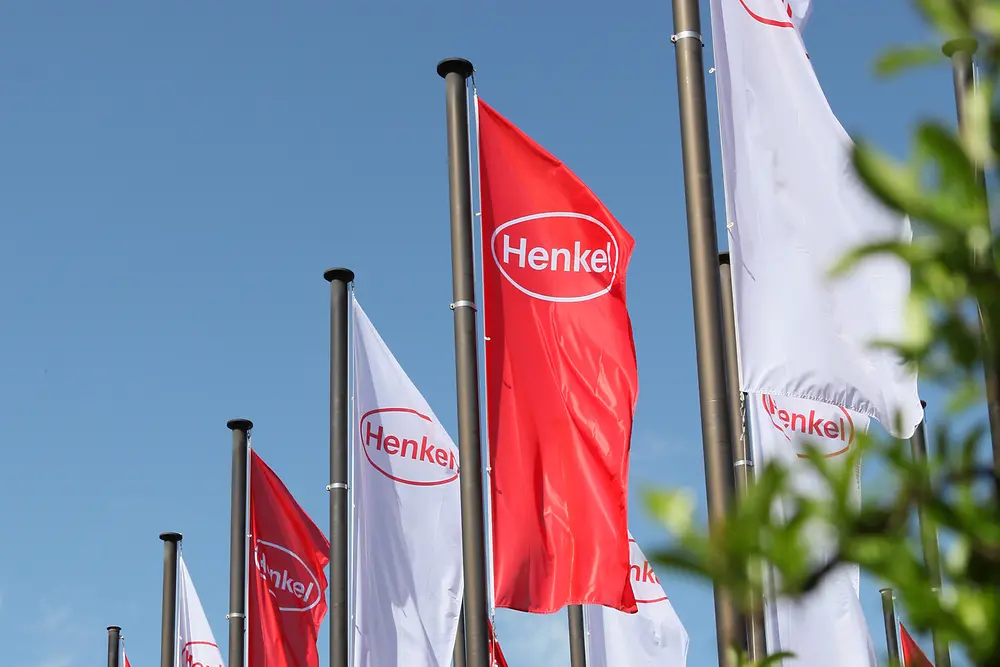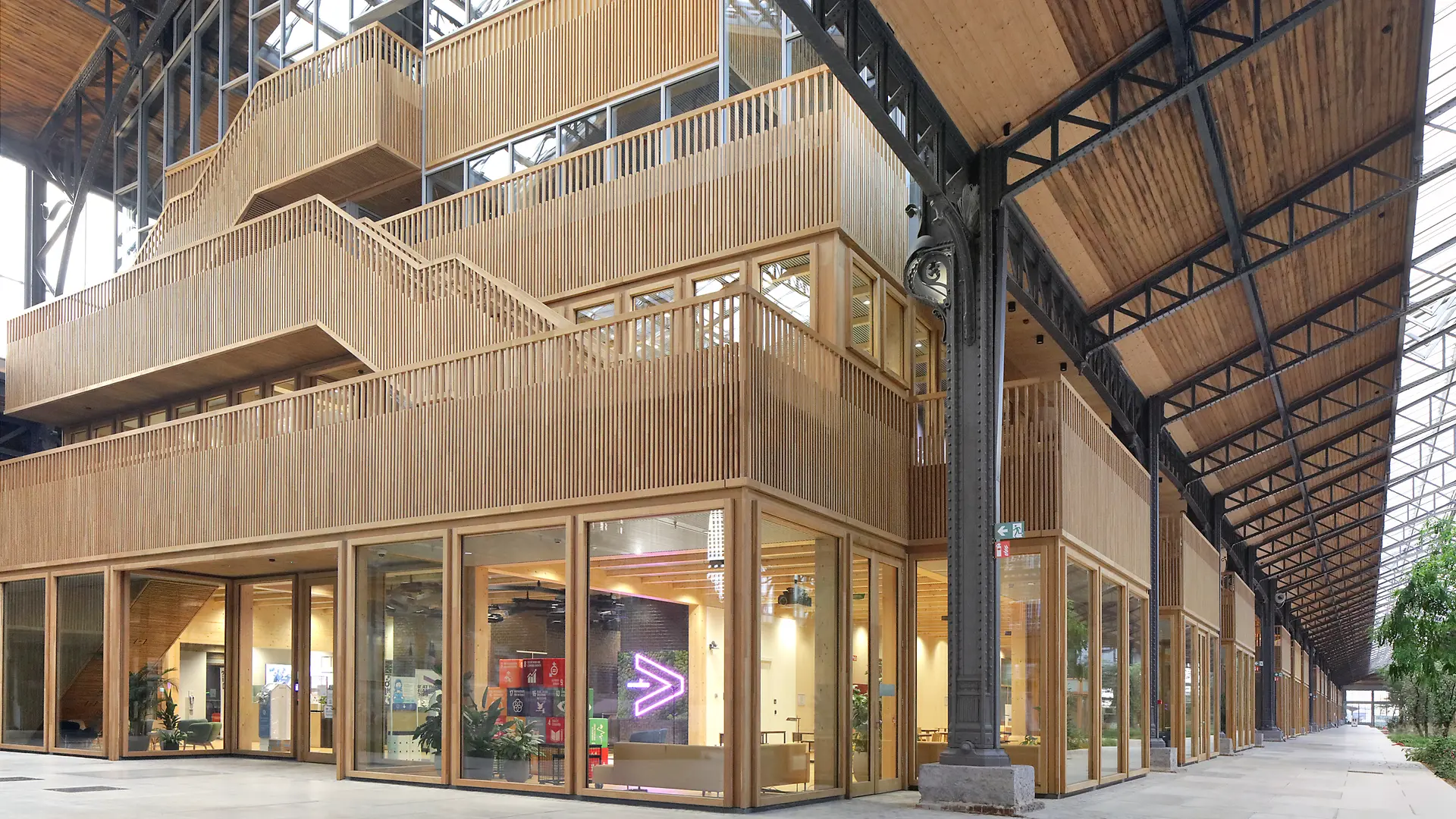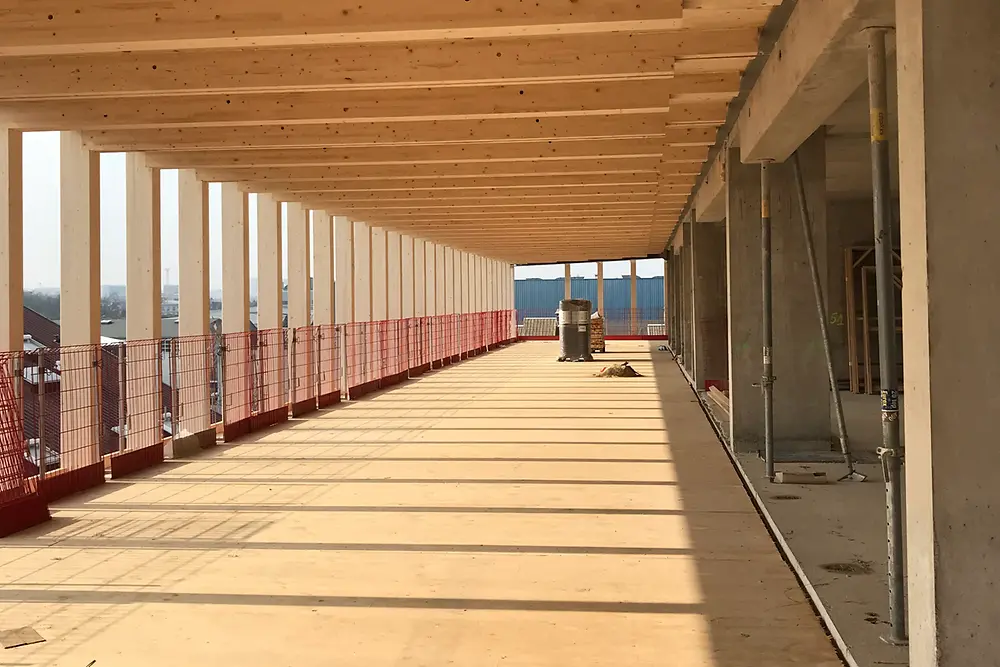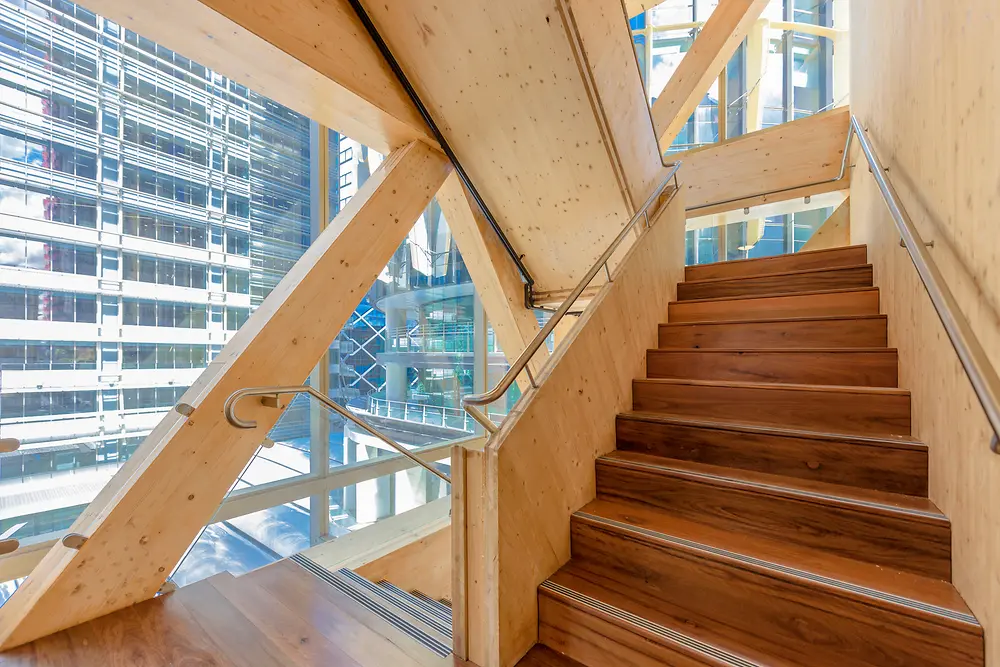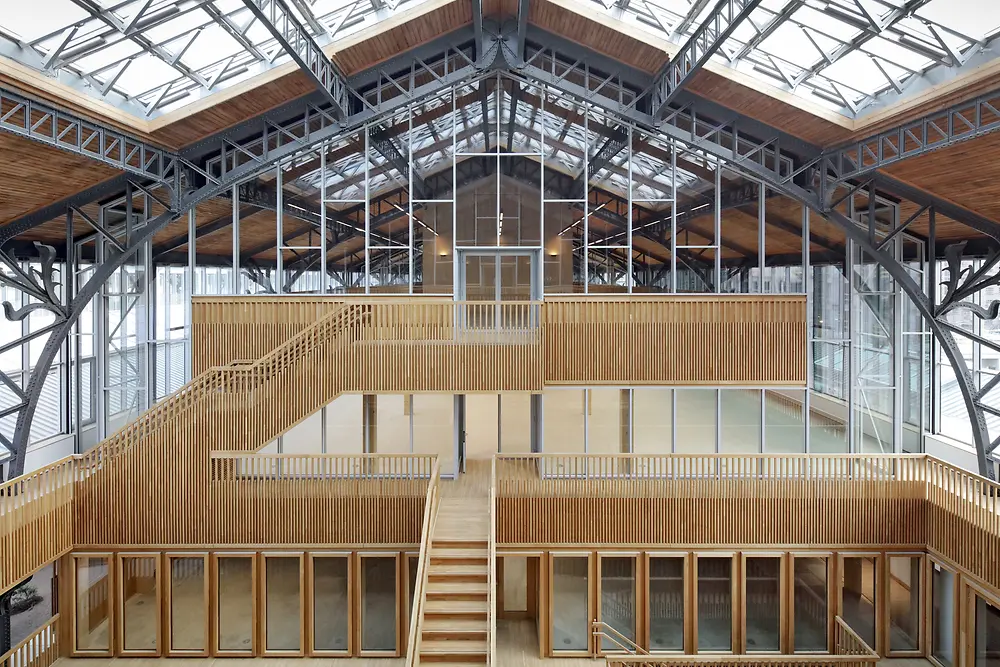Christian Fild: Yes, because the resources grow back. That is the big difference between wood and concrete or steel. There is enough woodland to supply wooden construction. Of course, sustainable management is essential and it is not acceptable to simply cut down forests. But I would like to emphasize that steel and concrete also play their part in construction. One is not superior to the other. The materials should be used according to where they make the most sense. Today, there are also many hybrid wooden buildings for which the benefits of all construction materials are essential.
The Pulse, located in Saint-Denis, France, is a hybrid wooden building combining the benefits of both concrete and wood.
5. You are the Head of Global Engineered Wood. How did this department emerge?
Christian Fild: We started off as a small business 25 years ago which was later acquired by Henkel. When cross-laminated timber, a new wood-based material, entered the market, the industry was looking for a suitable adhesive. At that time, Henkel launched a very specific adhesive technology: a polyurethane adhesive for wood bonding. The technology proved to be very well-suited for wood construction, and our division has since grown a lot - particularly strongly in the last seven years, in which wooden construction has transformed from a niche product into a larger industry segment.
6. So, Henkel has developed product ranges specifically for wooden construction elements. What is special about this adhesive technology?
Christian Fild: Our formaldehyde-free polyurethane adhesives were the first ones to meet the high standards for load-bearing wood construction. Adhesives containing formaldehyde work very well, but they are also carcinogenic which is why they are used less and less. Henkel has made a really great contribution by enabling formaldehyde-free bonding in wooden construction. Another special feature is that you can manufacture very quickly, precisely and neatly with Henkel's adhesives as they are great for constructing prefabricated buildings.
7. Polyurethane adhesives are an important component for innovative and sustainable construction. Which role will Henkel adhesives play in this industry in the future?
Christian Fild: Our goal is simple: We see wooden construction as a huge opportunity in terms of sustainability. I can also put it the other way around: Without wooden construction, the climate targets cannot be met. We at Henkel want to contribute to this as best we can. In the adhesives business, as it is often the case, we can only contribute a very small part, but the technology enables the bigger picture.





